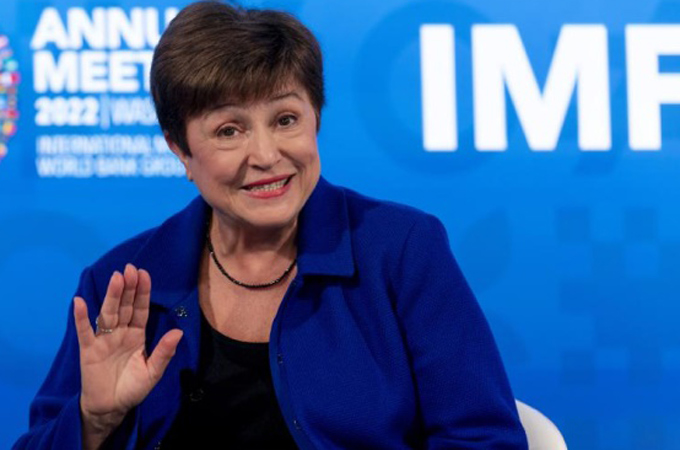
Kristalina Georgieva
Third of world will be in recession this year: IMF chief
NEW YORK, January 2, 2023
A third of the global economy will be in recession this year, International Monetary Fund (IMF) Managing Director Kristalina Georgieva has warned.
She said 2023 will be "tougher" than last year with the economies of the US, EU and China slowing down, a BBC report said. It comes as the war in Ukraine, rising prices, higher interest rates and the spread of Covid in China weigh on the global economy.
"We expect one third of the world economy to be in recession," Georgieva said on the CBS news programme Face the Nation. "Even countries that are not in recession, it would feel like recession for hundreds of millions of people," she added.
The IMF cut its outlook for global economic growth in 2023 in October, due to the war in Ukraine as well as higher interest rates as central banks around the world attempt to rein in rising prices.
Since then China has scrapped its zero-Covid policy and started to reopen its economy, even as coronavirus infections have spread rapidly in the country.
Georgieva warned that China, the world's second largest economy, would face a difficult start to 2023.
"For the next couple of months, it would be tough for China, and the impact on Chinese growth would be negative, the impact on the region will be negative, the impact on global growth will be negative," she said.
The official purchasing managers' index (PMI) for December showed that China's factory activity shrank for the third month in a row and at the fastest rate in almost three years as coronavirus infections spread in the country's factories.
On Saturday, in his first public comments since the change in policy, President Xi Jinping called for more effort and unity as China enters what he called a "new phase".
The downturn in the US also means there is less demand for the products that are made in China and other Asian countries including Thailand and Vietnam.
The lack of growth can trigger investors to pull money out of an economy and so countries, especially poorer ones, have less cash to pay for crucial imports like food and energy.
In these kinds of slowdowns a currency can lose value against those of more prosperous economies, compounding the issue, the BBC report said.








